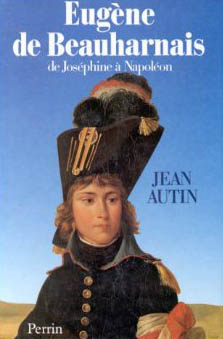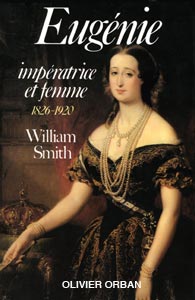History Prizes 1989

FIRST EMPIRE PRIZE
Jean AUTIN, Eugène de Beauharnais, Paris, Perrin
Jean Autin’s biography of Eugène de Beauharnais brings to life not only this talented prince, but also the last days of the Ancien Régime, the horrors of revolution, the splendour of the Consulate and the Empire, the conflicts with the Holy See, life in Vienna after Wagram and the terrible campaign in Moscow.
Napoleon adopted Eugène de Beauharnais, Josephine’s son, by grace of his dignity, loyalty and selflessness. This brilliant young hussar became Colonel of the Guard’s Horseback Hunters and then vice-chancellor of the Empire and viceroy of Italy, all by the tender age of twenty-three. From the battlefields of Lombardy and Egypt to the last pulses of the French campaigns, Eugène had a dramatic career. In 1806, he married Auguste-Amélie of Wittelsbach and retired to Munich, where his tomb rests. If the Empress Marie-Louise had not given Napoleon an heir, it is likely that Eugène would have filled this role too.

SECOND EMPIRE PRIZE
William SMITH, Eugénie. Impératrice et Femme, 1826-1920, Paris, Olivier Orban
In Grenada, on 5 May 1826, the future Empress of France, Eugénie, was born during an earthquake. She would be considered the greatest beauty of her era, and would live until the age of ninety-four. After her love marriage with Napoleon III and the happy beginnings of her reign, her life turned to tragedy: the drama of the Mexican campaign and the execution of Maximilian I of Austria, the defeat at Sedan and the Emperor’s subsequent destitution, exile in Britain and the death of both husband and son. Eugénie is traditionally seen as an ambitious, grasping figure, responsible for the fall of the Empire. William Smith’s book presents an alternative view, of a generous, warm person who was sensitively attuned to the birth of the modern world.
